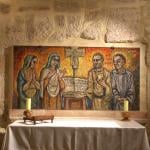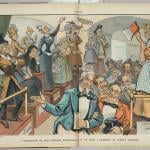PROVERBS 25:23 This verse gives us a translation issue in the first line. The NASB translates the line “The north wind brings forth rain,” but the KJV says that the north wind “drives away rain.” The verb in question has a range of applications and uses, but the basic idea is of twisting or turning. It sometimes refers to a whirling dance (Judges 21:21 ), sometimes to trembling in fear (Deuteronomy 2:25 ; Joel 2:6), and, because twisting can also... Read more
















